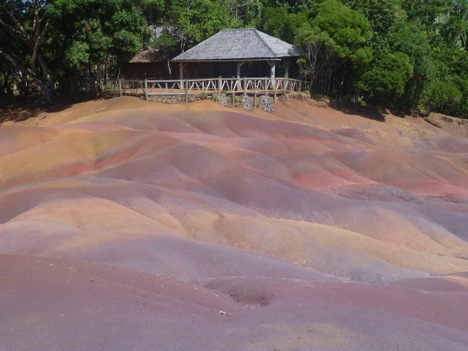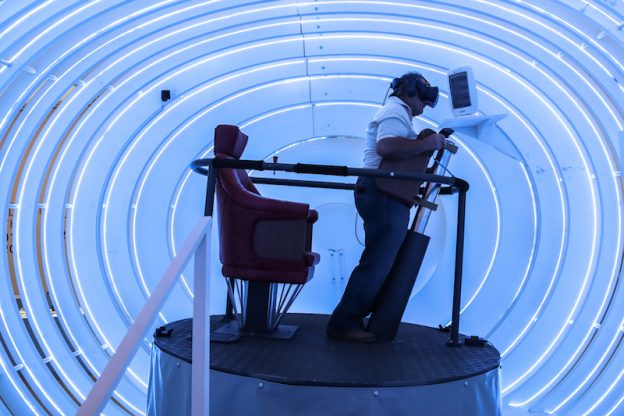A recent court ruling declaring the Kenya-Mauritius Double Taxation Avoidance Agreement (DTAA) void has sent Kenya back to the negotiating table with Mauritius. The court’s judgment is based on the fact that the DTAA was not properly ratified under Kenyan law. Kenya’s government argues that the treaty promotes investment and jobs; however, critics such as the Tax Justice Network Africa (TJNA), which filed this suit, argue that DTAAs rarely lead to any benefits for developing countries. TJNA argues that instead, they result in massive revenue leakage for African countries which outweighs incoming foreign direct investment (FDI).
Should countries, therefore, abandon the use of DTAAs? The answer more than likely lies in the middle: to bring real benefits to the economy and promote local market potential, countries should balance between the use DTAAs and other tax incentives such as special economic zones (SEZs).
Kenya’s DTAA with Mauritius was signed in 2014 with the hope of boosting foreign direct investment, but the benefits of the agreement were poorly defined from the outset. Similar to any policy, DTAAs must be rooted in clear and measurable objectives supported by equally clear policy levers to ensure that revenue generated from the resident country is not leaked through tax avoidance schemes like profit-shifting. Studies show that DTAAs signed between countries with asymmetric investment positions are less likely to lead to any benefits for developing countries. In the Netherlands, for example, DTAAs led to forgone revenue of at least USD 863 million for developing countries in 2011.
Given Kenya’s current budget deficit of USD 3.75 billion, it is critical that efforts to attract FDI such as DTAAs do not cannibalise local efforts to improve tax revenue. Numerous studies show that countries rarely achieve substantive FDI levels to make up for the revenue losses these DTAAs cause. The failed Kenya-Mauritius DTAA is not the first time a tax agreement with the island nation has been subject to controversy: in 2017, India reviewed its DTAA with Mauritius after reports showed that it had opened room for tax avoidance resulting in revenue leakage of about USD 600 million annually. In 2016 alone, Mauritian firms injected more than USD 50 million into the Kenyan economy, a 72 percent increase from 5 years prior. If the Dutch and Indian examples are any indication, Kenya could be losing far more. Lost corporate revenue is income that Kenya urgently needs to meet its development objectives. A shift to other tax incentives whose impact is more ascertainable may be more effective for many developing countries.
If the goal of DTAAs is to increase foreign investment in Kenya, they must be considered in conjunction with the broader ecosystem of policy instruments that can be used to increase tax revenues to achieve Kenya’s four priority pillars for economic growth. The government hopes to raise the manufacturing sector’s share of the GDP from 9% to 15%, and create 1.3 million jobs in this sector by 2022. To achieve this, governments should explore specific tax incentives that can provide direct benefits to these areas, such as special economic zones, which aim to maximise the “cluster effects” of activities through knowledge and supply chain integration, centralised access to critical infrastructure like roads and electricity, as well as enhanced support from local government.
Kenya, in making strides to use other tax incentives such as Special Economic Zones, should borrow lessons from its neighbours on reaping full benefits from SEZs. Rwanda, for example, has successfully leveraged SEZs to promote growth. In 2016, the Kigali Special Economic Zone (KSEZ) employed 2% of the country’s permanent employees, and accounted for 2.5% of all VAT reported sales. In Kenya, the government has already designated Mombasa, Kisumu, and Lamu as the future SEZs but to maximise their impact and avoid the development of enclaves, it is essential that firms in these SEZs interact with firms outside the zones and that the government ensures knowledge and best practices developed are shared across the economy.
Tax incentives alone will never be the sole factor attracting investors — to increase FDI, Kenya must continue to demonstrate strong market potential by providing business support and trade facilitation services. KPMG finds that Kenyan products are among the top four countries in Africa that score above the global average in terms of competitiveness on the international market; however, it still takes an average of 22 days to start a business — compared to 6.5 days in Egypt and 14 in Ghana — and poor availability of market data can complicate efforts at local expansion. To improve the country’s competitiveness, the Kenya Investment Authority should improve the availability of data for investors by working more closely with the Kenya Bureau of Statistics. Reducing business costs, for example, by bringing down the cost of imports for required goods or improving data quality to support manufacturing and value-added services will always outweigh lowering taxes.
The DTAA ruling prompts a careful re-examination of how to increase FDI without incurring unintended knock-on effects like tax avoidance. To do this, Kenya must enhance its capacity when negotiating bilateral agreements, and enact policies to support proper implementation of these agreements. In its use of tax incentives, it is critical that the scales are always tipped in Kenya’s favour. The impact of each incentive employed must be clear and measurable to ascertain that its benefits outweigh any associated costs.
A guest post by Bathsheba Asati and Faith Nyabuto of the Botho Emerging Markets Group.
See also: The Kenyan Guide to Mauritius for business travelers.
EDIT: In July 2020, Kenya and Mauritius entered a new five-year agreement for the avoidance of double-taxation and to prevent fiscal evasion of income taxes. It also binds the two nations to exchange information and to assist each other in collecting taxes due.

